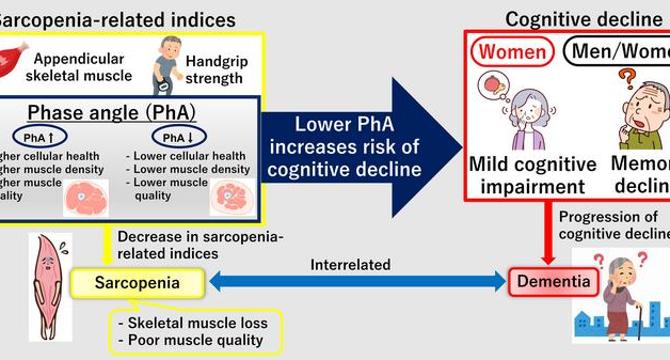Bioengineer
2w
372

Image Credit: Bioengineer
Muscle Quality: A Potential Early Indicator of Cognitive Decline
- A study by Postdoctoral Researcher Kentaro Ikeue at Doshisha University in Japan explores the connection between muscle quality and cognitive function as a potential indicator of cognitive decline in adults over 40.
- The research emphasizes the phase angle (PhA) as a new biomarker that correlates strongly with cognitive impairment in the general population, offering early detection possibilities before clinical symptoms manifest.
- Sarcopenia, the loss of skeletal muscle mass and strength, is a growing public health issue, and this study targets individuals as young as 40 for early identification and intervention in cognitive dysfunction stages.
- Phase angle, derived from bioelectrical impedance analysis, reflects muscle quality and cellular health, showing robust correlations with cognitive abilities in memory, attention, language, and executive function.
- Higher PhA values were associated with better cognitive scores, especially in memory domains, indicating the link between muscular health and brain function.
- Sex-specific differences were noted, with women showing correlations between PhA and multiple cognitive functions, and men primarily displaying associations in memory domains.
- The study suggests integrating phase angle measurements into routine health checkups to identify those at risk for cognitive decline early, enabling tailored preventive interventions.
- Enhancing muscle quality through strategies like resistance training and proper nutrition could not only combat sarcopenia but also potentially delay the progression to neurodegenerative disorders.
- Early-life interventions for cognitive decline show promise in altering disease trajectories, advocating for population health strategies focusing on muscle quality as a biomarker of brain health.
- Using bioelectrical impedance analysis for phase angle measurement offers practical benefits for large-scale screenings, providing a cost-effective and non-invasive method in diverse healthcare settings.
Read Full Article
22 Likes
For uninterrupted reading, download the app